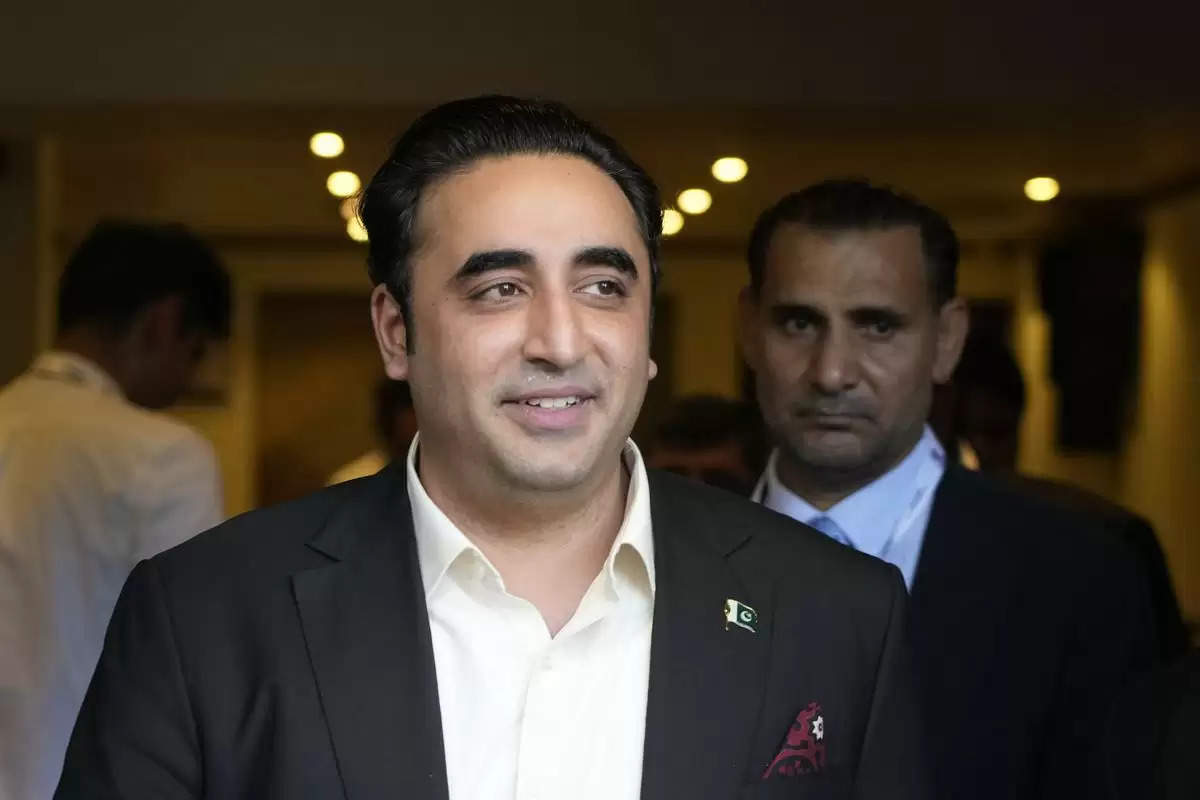According to Bilawal Bhutto Zardari, India's choices towards J&K have effectively ended discussions.

According to Pakistan's Foreign Minister Bilawal Bhutto Zardari, the decision by India to reorganise Jammu and Kashmir in August 2019 has made it "difficult" for those in Pakistan who had previously supported engagement. He added that the restoration of the union territory's statehood could be "one step." He said that the action, however, was the "sole thing" that was preventing India and Pakistan from having discussions at the time, and as a result, he had not asked for a bilateral meeting with his SCO host, Foreign Affairs Minister S. Jaishankar. Additionally, he stated that PM Shehbaz Sharif of Pakistan has not yet decided whether or not to fly to India in July to attend the Shanghai Cooperation Organization (SCO) Conference with Presidents of China and Russia.
According to Pakistan's Foreign Minister Bilawal Bhutto Zardari, the decision by India to reorganise Jammu and Kashmir in August 2019 has made it "difficult" for those in Pakistan who had previously supported engagement. He added that the restoration of the union territory's statehood could be "one step." He asserted that the action was the "sole thing" preventing India and Pakistan from continuing their current negotiations, and as a result, he had not asked for a bilateral meeting with his SCO host, Foreign Affairs Minister S. Jaishankar.He added that although Pakistan is committed to the SCO process, it has not yet been decided whether Pakistani Prime Minister Shehbaz Sharif will travel to India in July to join the presidents of China and Russia and other world leaders invited by Indian Prime Minister Narendra Modi to Delhi for the Shanghai Cooperation Organization (SCO) Summit.
There is a sincere desire on the part of Pakistan to talk through all issues and find a solution. But, the events of August 5 effectively put an end to that process, as Mr. Bhutto stated in an exclusive interview with The Hindu while in Goa for the SCO Council for Foreign Ministers (SCO-FMM). "We would like India, the Indian government to create an atmosphere favourable to talks and as soon as we revert to the status quo of August 4, 2019, I feel we can have a productive conversation," the Indian ambassador said.
Although Pakistan Prime Leader Nawaz Sharif attended Prime Minister Narendra Modi's swearing-in ceremony in 2014, Mr. Bhutto is the first foreign minister from Pakistan to visit India since 2011. Due to Pakistan's response to the government reorganisation of Jammu and Kashmir and the amendment of Article 370, as well as the Pulwama suicide bombing that claimed the lives of 40 Indian soldiers, India and Pakistan no longer have High Commissioners in each other's capitals and have severed all trade and travel ties. Mr. Bhutto said that Pakistan's complaints were based on India's claimed violations of international law and UN Security Council resolutions when asked why Pakistan had opposed to the actions, which were internal to India and related to the Indian constitution and did not affect Pakistan.He claimed that the bilateral position on these topics as well as the international one had been unilaterally and subverted. However, up until 2019, Pakistan had maintained that it did not acknowledge Article 370, which establishes Jammu and Kashmir's relations with the Center.
When questioned about the recent attack on an Army vehicle that left five Indian soldiers dead in Poonch and in response to India's assertion that there cannot be talks without an end to cross-border terrorism, Mr. Bhutto states that he condemns all terrorist acts "from India to the US" and that no Indian official has blamed Pakistan for the attack in Poonch.He asserted that "the new unity government in Pakistan has taken this issue by the horns, and we have rejected [Imran Khan's] policy of appeasement when it comes to this issue," but added that actions against LeT chief Hafiz Saeed and JeM chief Masood Azhar, who are sought for the 2008 Mumbai attacks and the 2001 Parliament attack, respectively, as had been demanded by the Financial Action Task Force, were still pending because they are "under trial" and the matter is " He questioned why the government had not pursued the issue further in light of the suspects' acquittals in the 2007 Samjhauta Express bombings in India, which resulted in the deaths of Pakistani people.
In addition, Mr. Bhutto denied that any back-channel discussions between India and Pakistan were currently in progress, but he did acknowledge that they had previously been "constructive."
After the two ministers exchanged accusations at the UN in New York in December 2022 and Mr. Bhutto even made a direct assault on PM Modi for his involvement as Chief Minister during the 2002 Gujarat riots, Mr. Bhutto had not seen Mr. Jaishankar face to face until his visit to India.When asked about his remarks regarding Prime Minister Modi, Mr. Bhutto responded that he didn't believe them to be a "personal attack" and that "there's nothing personal in diplomacy and in politics," suggesting he wouldn't retract the remarks that had caused a great deal of uproar in India.When asked about his remarks regarding Prime Minister Modi, Mr. Bhutto responded that he didn't believe them to be a "personal attack" and that "there's nothing personal in diplomacy and in politics," suggesting he wouldn't retract the remarks that had caused a great deal of uproar in India.
.png)